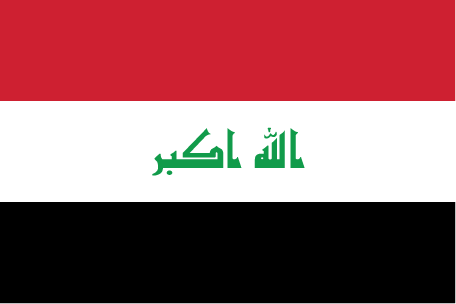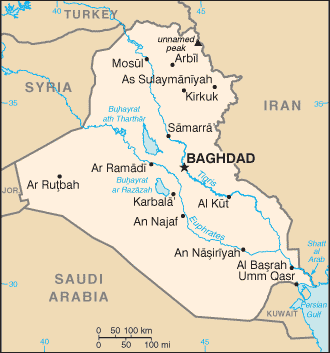Investing in Iraq


An improved security environment and an initial wave of foreign investment are helping to spur economic activity, particularly in the energy, construction, and retail sectors. Broader economic improvement, long-term fiscal health, and sustained increases in the standard of living still depend on the government passing major policy reforms and on continued development of Iraq's massive oil reserves. Although foreign investors viewed Iraq with increasing interest in 2010, most are still hampered by difficulties in acquiring land for projects and by other regulatory impediments. Iraq's economy is dominated by the oil sector, which provides over 90% of government revenue and 80% of foreign exchange earnings. Since mid-2009, oil export earnings have returned to levels seen before Operation Iraqi Freedom and government revenues have rebounded, along with global oil prices. In 2011 Baghdad probably will increase oil exports above the current level of 1.9 million barrels per day (bbl/day) as a result of new contracts with international oil companies, but is likely to fall short of the 2.4 million bbl/day it is forecasting in its budget. Iraq is making modest progress in building the institutions needed to implement economic policy. In 2010, Bagdad signed a new agreement with both the IMF and World Bank for conditional aid programs that will help strengthen Iraq's economic institutions. Some reform-minded leaders within the Iraqi government are seeking to pass laws to strengthen the economy. This legislation includes a package of laws to establish a modern legal framework for the oil sector and a mechanism to equitably divide oil revenues within the nation, although these and other important reforms are still under contentious and sporadic negotiation. Iraq's recent contracts with major oil companies have the potential to greatly expand oil revenues, but Iraq will need to upgrade its oil processing, pipeline, and export infrastructure to enable these deals to reach their potential. The Government of Iraq is pursuing a strategy to gain additional foreign investment in Iraq's economy. This includes an amendment to the National Investment Law, multiple international trade and investment events, as well as potential participation in joint ventures with state-owned enterprises. Provincial Councils also are using their own budgets to promote and facilitate investment at the local level. However, widespread corruption, inadequate infrastructure, insufficient essential services, and antiquated commercial laws and regulations stifle investment and continue to constrain the growth of private, non-energy sectors. The Central Bank has successfully held the exchange rate at approximately 1,170 Iraqi dinar/US dollar since January 2009. Inflation has decreased consistently since 2006 as the security situation has improved. However, Iraqi leaders remain hard pressed to translate macroeconomic gains into improved lives for ordinary Iraqis. Unemployment remains a problem throughout the country. Reducing corruption and implementing reforms - such as bank restructuring and developing the private sector - would be important steps in this direction.
Central Bank of Iraq - http://www.cbiraq.org/
Countries that border Iraq: Turkey | Syria | Jordan | Saudi Arabia | Kuwait | Iran
Learn more:
Back to Country Investing



